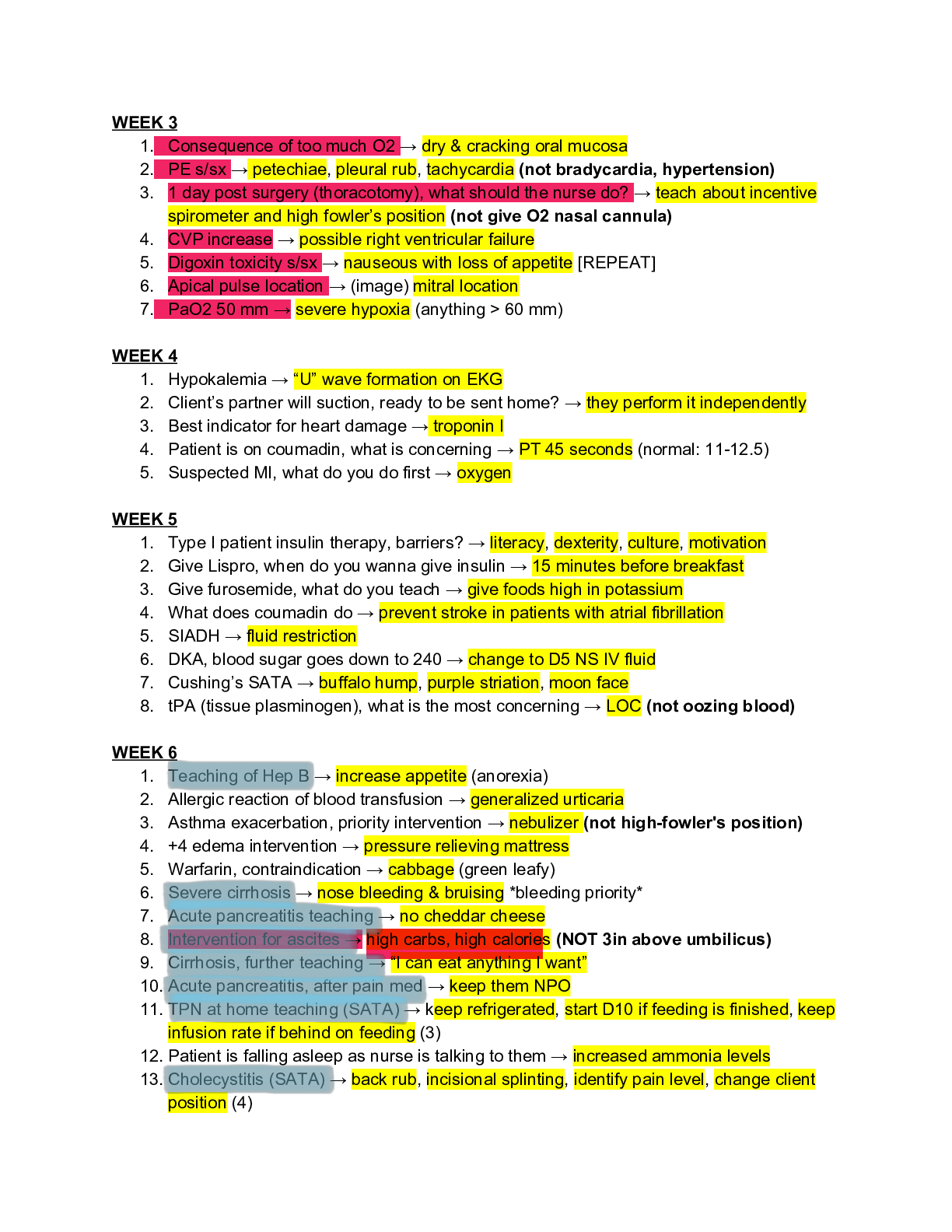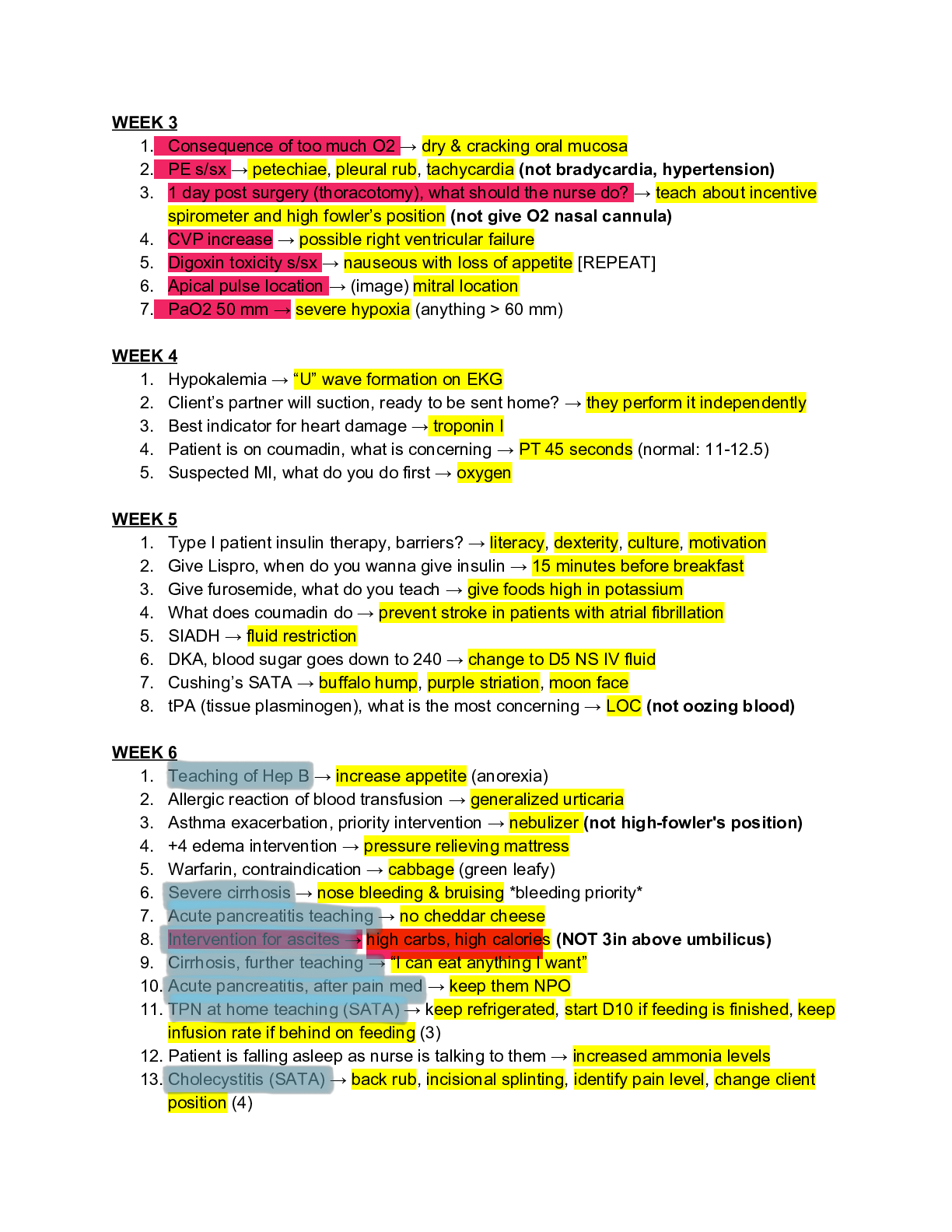WEEK 3
1. Consequence of too much O2 → dry & cracking oral mucosa
2. PE s/sx → petechiae, pleural rub, tachycardia (not bradycardia, hypertension)
3. 1 day post surgery (thoracotomy), what should the nurse do? → teach about incentive
spirometer and high fowler’s position (not give O2 nasal cannula)
4. CVP increase → possible right ventricular failure
5. Digoxin toxicity s/sx → nauseous with loss of appetite [REPEAT]
6. Apical pulse location → (image) mitral location
7. PaO2 50 mm → severe hypoxia (anything > 60 mm)
WEEK 4
1. Hypokalemia → “U” wave formation on EKG
2. Client’s partner will suction, ready to be sent home? → they perform it independently
3. Best indicator for heart damage → troponin I
4. Patient is on coumadin, what is concerning → PT 45 seconds (normal: 11-12.5)
5. Suspected MI, what do you do first → oxygen
WEEK 5
1. Type I patient insulin therapy, barriers? → literacy, dexterity, culture, motivation
2. Give Lispro, when do you wanna give insulin → 15 minutes before breakfast
3. Give furosemide, what do you teach → give foods high in potassium
4. What does coumadin do → prevent stroke in patients with atrial fibrillation
5. SIADH → fluid restriction
6. DKA, blood sugar goes down to 240 → change to D5 NS IV fluid
7. Cushing’s SATA → buffalo hump, purple striation, moon face
8. tPA (tissue plasminogen), what is the most concerning → LOC (not oozing blood)
WEEK 6
1. Teaching of Hep B → increase appetite (anorexia)
2. Allergic reaction of blood transfusion → generalized urticaria
3. Asthma exacerbation, priority intervention → nebulizer (not high-fowler's position)
4. +4 edema intervention → pressure relieving mattress
5. Warfarin, contraindication → cabbage (green leafy)
6. Severe cirrhosis → nose bleeding & bruising *bleeding priority*
7. Acute pancreatitis teaching → no cheddar cheese
8. Intervention for ascites → high carbs, high calories (NOT 3in above umbilicus)
9. Cirrhosis, further teaching → “I can eat anything I want”
10. Acute pancreatitis, after pain med → keep them NPO
11. TPN at home teaching (SATA) → keep refrigerated, start D10 if feeding is finished, keep
infusion rate if behind on feeding (3)
12. Patient is falling asleep as nurse is talking to them → increased ammonia levels
13. Cholecystitis (SATA) → back rub, incisional splinting, identify pain level, change client
position (4)
Read More


